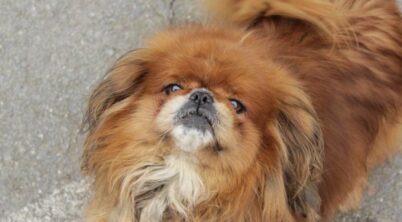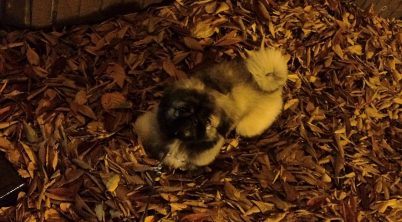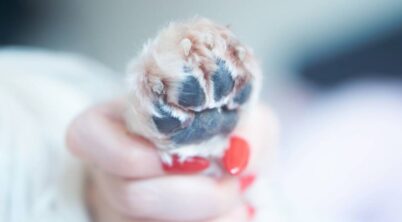Table of Contents
Causes and Solutions
Pekingese dogs, known for their unique appearance and loyal companionship, can sometimes exhibit a concerning behavior: refusing to eat. This issue can stem from various causes, ranging from dental problems to psychological factors. Identifying the root of the problem is crucial in addressing the issue and ensuring the health and well-being of these adorable pets.
One common reason for a Pekingese dog not eating is linked to dental issues. These dogs are prone to dental problems due to their small mouths and crowded teeth. Poor diet, lack of dental hygiene, or genetics can exacerbate these issues, leading to discomfort and a reluctance to eat. It is imperative to consult with a veterinarian to establish a proper dental care routine for a Pekingese dog.
Another contributing factor to a Pekingese not eating could be an improper diet or insufficient exercise. Owners may unknowingly feed their dogs human treats and table scraps, which may not provide the necessary nutrients a Pekingese requires. Additionally, insufficient exercise can affect their appetite. To resolve this, it is crucial to feed them a well-balanced diet specifically designed for their size and breed, combined with regular exercise to encourage overall health. Make sure to consult with your veterinarian to establish the most suitable daily regimen for your Pekingese dog.
Understanding Pekingese Eating Habits
Pekingese dogs have unique eating habits that can be influenced by various factors such as their diet, environment, and health status. It is essential to understand these habits in order to provide the best nutrition and care for a Pekingese.
To provide a balanced diet, select a brand of dog food that is specifically formulated for small breeds, like the Pekingese. Their diet should contain natural ingredients like animal proteins, animal or vegetable fats, rice, and vegetables. High-quality kibble, or dry food, is a suitable option for Pekingese. This type of dog food supports the maintenance of a healthy weight, prevents shedding, and minimizes drooling. Some owners also prefer to mix dry kibble with wet food to cater to their dog’s preference and provide a variety in texture.
It is important to present the dog food in an appropriate bowl for the Pekingese to avoid unnecessary stress or discomfort during their mealtime. Since Pekingese have a flat facial structure, using a shallow and flat bowl will help them eat easily. Remember to maintain a consistent schedule for mealtimes, offering food twice a day for adults, and ensuring the feeding portions adhere to the guidelines on the dog food packaging.
Occasionally, Pekingese may exhibit issues with eating, such as refusing to eat at all. This behavior could be due to an underlying health issue or merely a result of a lack of interest in the same brand or type of dog food. If a Pekingese suddenly stops eating, observe for any possible signs of illness, like fever or vomiting. If the dog seems healthy but is still not eating, consider trying a different brand or flavor of dog food to reignite their interest in eating.
Adopting these strategies to understand and accommodate Pekingese eating habits will contribute to the overall health and well-being of the dog. Keep in mind that monitoring their nutrition and observing changes in eating behavior can help detect any early signs of potential health complications.
Health Issues Affecting Pekingese Eating
Pekingese dogs are prone to a variety of health issues, which may affect their eating habits. One of the most common health problems in Pekingese dogs is heart disease, which can be caused by factors such as genetic predisposition, poor diet, lack of exercise, and obesity. The heart’s reduced ability to pump blood efficiently may lead to a decreased appetite in these dogs.
Dental issues are another common concern in Pekingese dogs. Due to their brachycephalic facial structure, they may suffer from dental disease, which can cause pain and discomfort while eating. It is important to regularly check their oral health and provide proper dental care to avoid further complications. If your Pekingese shows signs of dental problems like bad breath or difficulty eating, they may require medication or professional dental cleaning.
Breathing issues such as brachycephalic airway syndrome are prevalent in Pekingese dogs due to their flat face and short nose, causing difficulties in their respiratory system. This makes it harder for them to breathe, especially while eating. Such conditions may require medical intervention or surgery in severe cases.
Digestive issues like intervertebral disk disease and hip dysplasia are known to affect the Pekingese breed, causing pain and discomfort that can lead to a loss of appetite. If your dog is experiencing these issues, it is crucial to consult with your veterinarian for proper diagnosis and treatment.
Allergies and infections may also play a role in a Pekingese dog’s reluctance to eat. Ear infections, for instance, may cause pain, while gastrointestinal infections may lead to diarrhea or vomiting. Seek veterinary advice if your dog is presenting these symptoms, as appropriate medication, antibiotics, or dietary changes might be necessary.
In conclusion, there are multiple health issues that might affect a Pekingese dog’s eating habits, including heart disease, dental problems, respiratory issues, joint and digestive concerns, and infections or allergies. Early detection and proper veterinary care are essential in maintaining the well-being of your Pekingese.
Veterinarian’s Role in Monitoring Eating
A veterinarian plays a crucial role in maintaining the health of a Pekingese dog, particularly when it faces eating issues. Prompt diagnosis by a professional is essential for identifying the underlying causes of the dog’s reluctance to eat. Veterinarians are equipped with the necessary expertise to manage such issues effectively, ensuring the well-being of the pet.
In situations where a Pekingese is not eating, pet owners should seek professional help as soon as possible. Veterinarians can determine whether the cause is medical, such as dental problems or medication side effects, or behavioral, like pickiness due to human food or old age. A comprehensive evaluation by a veterinarian can shed light on the exact problem, leading to targeted treatment strategies.
Vaccinations are crucial in keeping a Pekingese dog healthy and a regular vaccination schedule should be maintained under the guidance of a veterinarian. These vaccinations can help prevent certain illnesses that may lead to loss of appetite, ensuring that the pet remains active and enjoys eating.
As a Pekingese advances in age, its nutritional needs and appetite may change. A veterinarian can advise the owner on appropriate diet modifications to cater to the dog’s evolving requirements. Furthermore, older Pekingese may develop age-related health issues, such as arthritis or organ dysfunction, that can affect appetite. A thorough examination by a veterinarian can detect such issues and enable prompt intervention to promote a better quality of life for the dog.
In conclusion, the role of a veterinarian in monitoring the eating habits of a Pekingese dog is multi-faceted and indispensable. From prompt diagnosis and treatment to preventative measures through vaccinations and age-related guidance, a veterinarian is the key to ensuring the dog’s health and addressing eating problems effectively.
Preventing Pekingese Health Problems
Taking care of a Pekingese dog’s health involves a combination of regular exercise, a balanced diet, and preventive care. To maintain the well-being of your Pekingese, it is essential to be aware of possible health issues and take preventive measures.
A healthy diet is crucial for a Pekingese’s overall health. Providing the appropriate nutrients can prevent obesity and other health issues that result from a poor diet. An adult Pekingese requires about 0.75 cups of food, or approximately 400 calories per day, divided into two meals. Meanwhile, puppies younger than six months old will need an average of 0.4 cups, or 225 calories divided into three meals.
In addition to a well-balanced diet, regular exercise and physical activity are essential for Pekingese dogs to prevent obesity and maintain strong bones. Pekingese dogs are prone to eye diseases such as cataracts, so it is crucial to be aware of any changes in their eyesight and to consult a veterinarian if necessary.
Regular grooming, including brushing their coat, is also important to maintain the Pekingese dog’s general hygiene. This will help prevent skin issues, and it is an opportunity to check for any signs of external health problems. Monitoring the condition of your Pekingese dog’s coat could give you a valuable insight into their health.
Preventive health care, such as regular check-ups with a veterinarian, is an effective way to catch any health problems early on. Routine visits can help identify and manage health issues before they escalate into more severe problems. Dental care is also essential for Pekingese dogs, as they are prone to dental diseases, which may lead to difficulty eating, pain, and discomfort.
When choosing a Pekingese, it is crucial to select a reputable breeder who prioritizes the dog’s health and well-being. This can help you ensure that your Pekingese puppy comes from a healthy lineage, reducing the risk of genetic health problems.
In conclusion, a combination of a balanced diet, regular exercise, and preventive care can significantly reduce the risk of Pekingese dogs developing health issues. Being proactive in addressing your dog’s health needs will greatly contribute to their overall happiness and well-being.
Specific Diet Needs of a Pekingese Dog
Pekingese dogs have unique dietary requirements to maintain their overall health and well-being. As descendants of wolves, their digestive systems are best suited for fresh, high-protein-based diets consisting predominantly of meat, bones, and offal.
One way to make sure your Pekingese is getting adequate nutrients is by offering them a variety of protein sources. This can include real chicken, turkey, beef, fish, and eggs. In addition to protein, incorporating yogurt and vegetables like broccoli into their diet can be beneficial for their overall health.
It is noteworthy that warming canned dog food in the microwave might make the food more appealing to your Pekingese. The scent from the heated food will be similar to “people food,” which can further stimulate their appetite. If you choose to warm the canned dog food, be sure to stir it afterward to ensure there are no hot spots that could potentially burn your dog’s tongue.
Hydration is another crucial aspect of your Pekingese’s diet. Make sure they have access to fresh and clean drinking water at all times. Adequate water intake can help prevent dehydration and promote healthy digestion.
In some cases, Pekingese dogs may be receptive to incorporating cooked rice into their diet. Brown rice can be a good source of fiber, which can help with digestion and overall gastrointestinal health. However, it is important to remember that rice should only make up a small portion of their daily caloric intake and should not substitute the essential proteins and nutrients needed for optimal health.
To ensure that your Pekingese maintains a healthy weight, monitor their food intake and avoid overfeeding. The American Kennel Club notes that a standard-sized Pekingese should weigh no more than 14 pounds, while the small sleeve Pekingese should not exceed 7 pounds.
Taking care of your Pekingese dog’s dietary needs is essential in maintaining their overall health and happiness. By providing them with the proper nutrition and hydration, you can support their well-being and keep them feeling their best.








